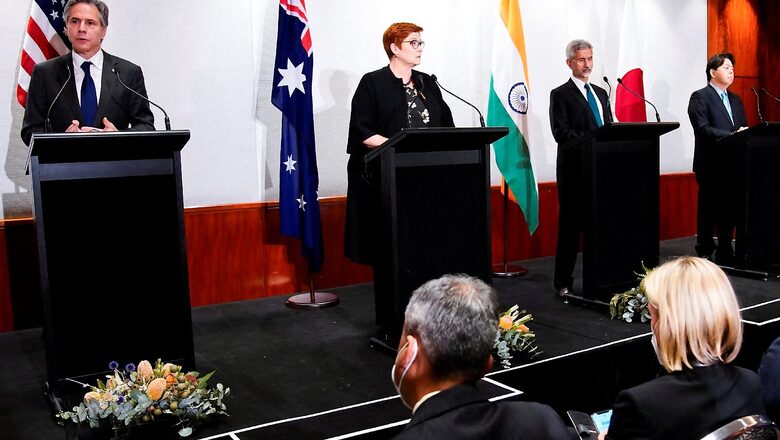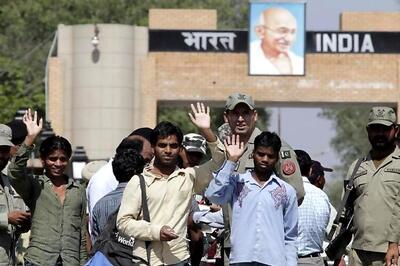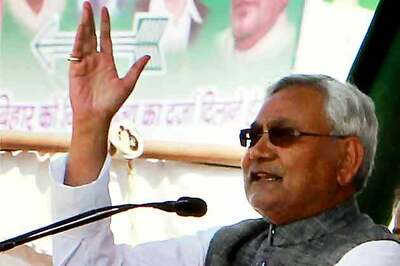
views
During the fourth edition of the Quad meeting of foreign ministers a message was sent to Pakistan, China and North Korea advising them not to partake in activities which threaten the peace and stability in the Indo-Pacific region. While no names of any nations and leaders – barring North Korea and its flurry of recent ballistic missile tests – were taken references to cross-border terrorism, aggression in South and East China Seas and instability in Afghanistan were made.
In a joint statement, the Quad foreign ministers condemned the use of terrorist proxies for cross-border terrorism while encouraging other nations as well to work in unison to eliminate terrorist safe havens.
“We denounce the use of terrorist proxies for cross-border terrorism and urge countries to work together to eliminate terrorist safe havens; disrupt terrorist networks and the infrastructure and financial channels which sustain them; and halt cross-border movement of terrorists,” the minister said in a joint statement without taking name of any particular nation. The statement also reflected the US, Australia and Japan’s support to India’s fight against terrorism as they denounced the 26/11 Mumbai and Pathankot attacks. These statements can also be seen as highlighting Pakistan’s role in fomenting instability in the Jammu and Kashmir region. All members also agreed that Afghanistan must be stopped from becoming a terrorism safe haven.
Japanese foreign minister Yoshimasa Hayashi was vocal about the threat the region and Japan faces due to aggression in the South China Sea and East China Sea referring to Chinese exercises in the region without naming the nation. He also highlighted that Kim Jong Un’s flurry of ballistic missile tests are a constant threat to the stability of the region. Hayashi also spoke at length about how vital Taiwan is to the region’s security and economic prosperity and said that it will feature when Quad heads of state convene for a meeting later this year.
Australian foreign minister Payne chose to highlight the practice of economic coercion alluding to nations’ which are under tremendous Chinese debt and are having to make compromises on national interests due to its dependency on China. “We oppose coercive economic policies and practises that run counter to this system and will work collectively to foster global economic resilience against such actions,” Payne said.
US secretary of state Antony Blinken pointed out that the Indo-Pacific region will shape the 21st century. “The Indo-Pacific will shape the trajectory of the 21st century, important because this is necessary to ensure free flow of individuals and business. Deepening Quad engagement will help us realise this vision of a free and fair Indo-Pacific,” Blinken said. He also reflected on the Ukraine crisis and said that what is happening halfway away from Australia holds weight as it can happen to any nation if such actions are allowed unimpeded, alluding to US claims of Russian aggression along the Ukraine border.
Read all the Latest News here



















Comments
0 comment